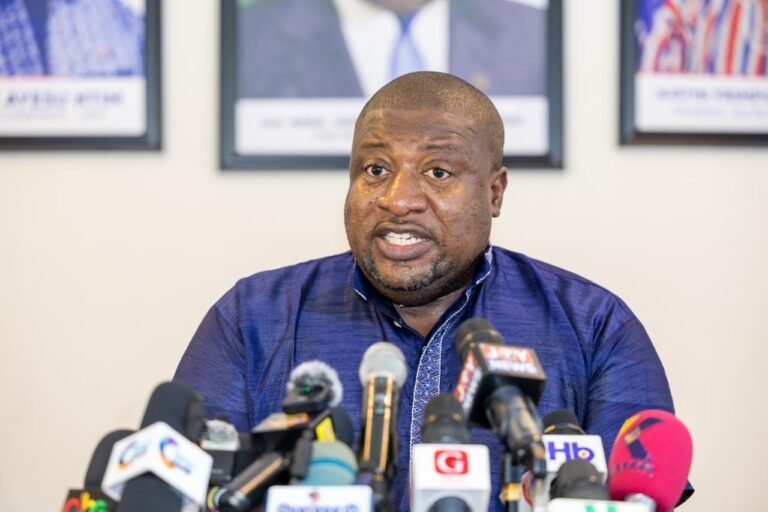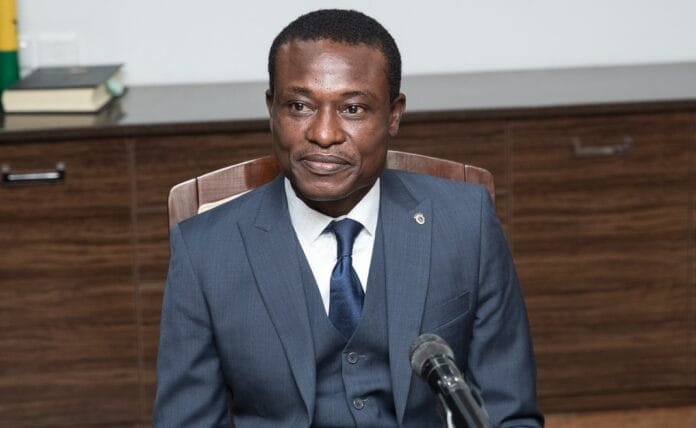
Chief Justice Anin Yeboah
The seven-member Supreme Court panel hearing the ongoing presidential election petition has set Thursday March 4, 2021 as the day to deliver its judgement.
This was announced after counsel for the petitioner was re-ordered to file his written submission by close of day today.
Chief Justice Kwasi Anin Yeboah, before the court rose yesterday, stated: “The petition is adjourned to March 4, 2021 for judgement.”
“We are of the opinion that the petitioner should be granted leave to file his closing address on or before Tuesday, February 23, 2021,” he added.
The petitioner, John Dramani Mahama, is challenging the declaration of the second respondent, Nana Addo Dankwa Akufo-Addo, by the first respondent, the Electoral Commission, as the winner of the December 7, 2020 general election.
Review application
The court yesterday dismissed another review application brought before it by the petitioner. The petitioner was asking the court to review its earlier ruling on February 16 that barred him from re-opening his case to subpoena the first respondent’s Chairperson, Jean Mensa, to testify.
Moving the review motion yesterday before a nine-member panel, the petitioner’s lead counsel, Tsatsu Tsikata, argued that the apex court made fundamental errors of law in its earlier ruling.
According to him, the court’s ruling failed to address Order 38, Rule 10, the main basis for which the petitioner was seeking to have his case re-opened.
Mr Tsikata added that the court made no reference to Section 72 of the Evidence Act in its ruling, insisting that the court cannot side-line the operation of a statute by reference to subsidiary legislation.
He further argued that the petitioner had presented enough evidence against the first respondent and further satisfied Rule 54, which is the grounds for seeking a review.
But counsel for first and second respondents, Justin Amenuvor and Akoto Ampaw, respectively, in opposing the application, argued that Section 72 of the Evidence Acts relates to a situation where a party has not closed its case, and cannot therefore apply in the instant case.
They further argued that the court was still not aware of the evidence that the applicant wanted to present that would warrant the re-opening of his case.
Emotional reaction, pandora box
The court then dismissed the application by maintaining its earlier ruling. It explained that a review jurisdiction should not be seen and used as an “emotional reaction to an unfavorable judgment”.
Chief Justice Anin Yeboah, delivering the ruling of the court, said the panel was restrained by its mandate to “administer justice in accordance with law and accepted justice.” He added that the court “must ensure that it is not opening Pandora’s Box that can become a stepping stone for abuse of court processes at other levels of the judicial system.”
“The interest of justice is not only the interest of one party in the dispute, but must necessarily be an outcome arrived at through the proper balance of what the law has prescribed as the duties of the court to all parties and the duties of the parties to each other,” the Chief Justice noted.
Contempt
In a related development, the court also ordered former Deputy Attorney General Dr Dominic Ayine to go and apologise for scandalising it.
This was after the court had cited the former Deputy Attorney General for contempt.
Dr Ayine was found guilty of contempt for comments he made to the media on February 16, 2021, at a post-hearing press conference where he accused the court of having a “pre-determined agenda” to rule against the petitioner in the case.
“For the Supreme Court to reduce the petition into a single issue petition is rather unfortunate and smacks of a predetermined agenda to rule against the petitioner in this matter…,” Dr Ayine said.
At the hearing of the contempt case yesterday, Dr Ayine apologised to the court by himself and through his lawyer, Mr Frank Beechem, who is a former president of the Ghana Bar Association (GBA).
When he appeared before the court, Dr Ayine indicated that he had already written to court to render an apology for his gaffe.
“My Lord Chief Justice, I did say those words. My attention was drawn to the fact that I might have crossed the line by Mr Frank Davies; and your Lordships, on advice and consultation with my counsel, I have written to the court rendering an unqualified apology. I delivered that letter this morning to the registrar of the Supreme Court to bring it to your Lordships’ attention,” he stated.
The court then ordered him to purge himself by using the same medium through which he made the contemptuous comments to render an unqualified apology.
The court then set Thursday, February 25, to decide on the contempt case.






